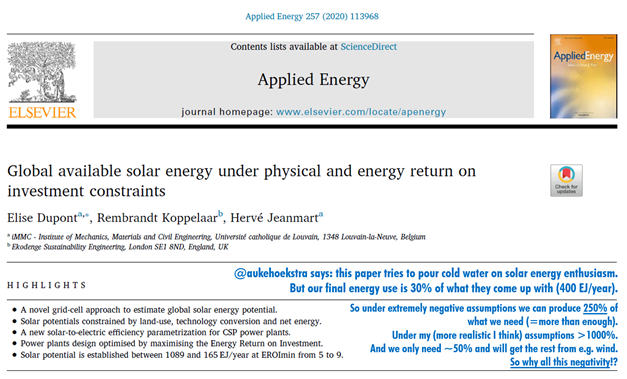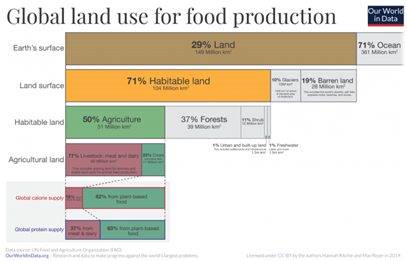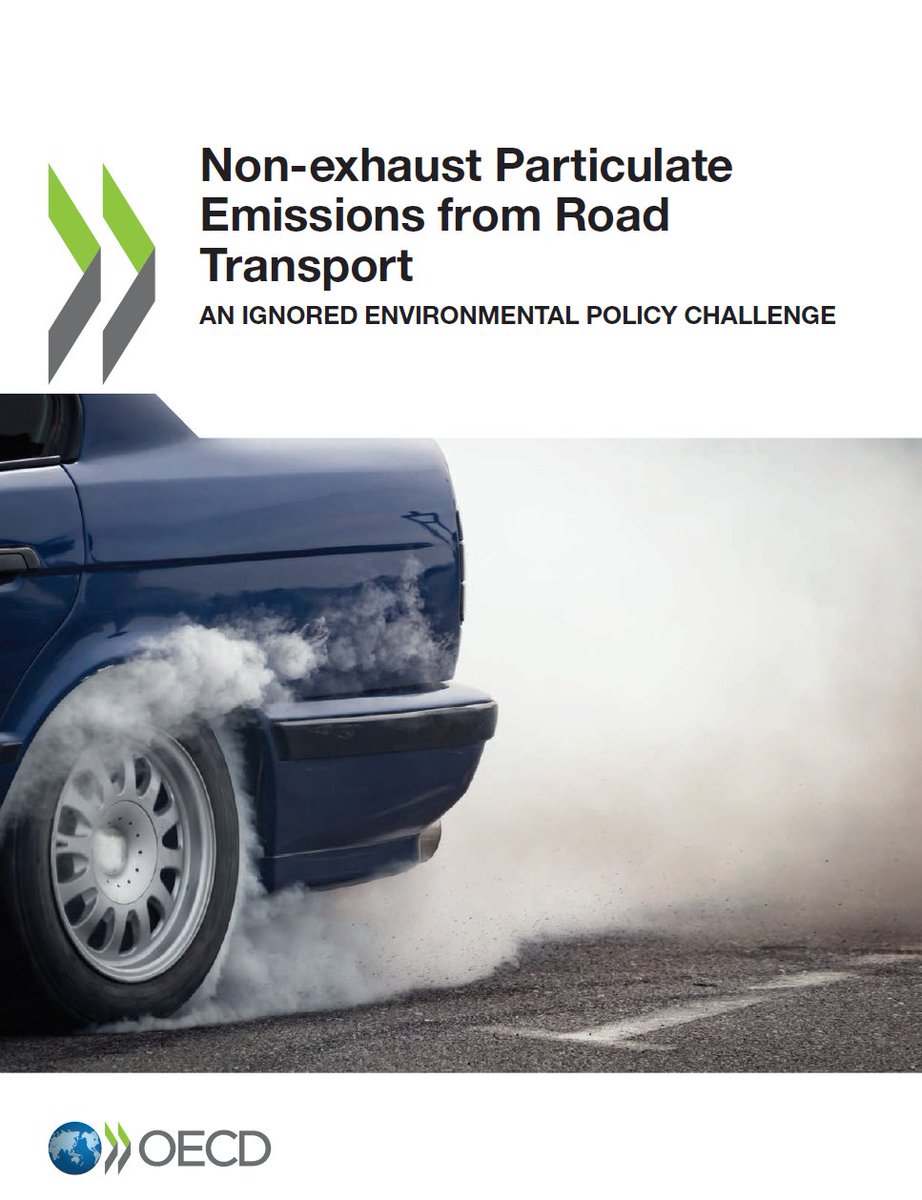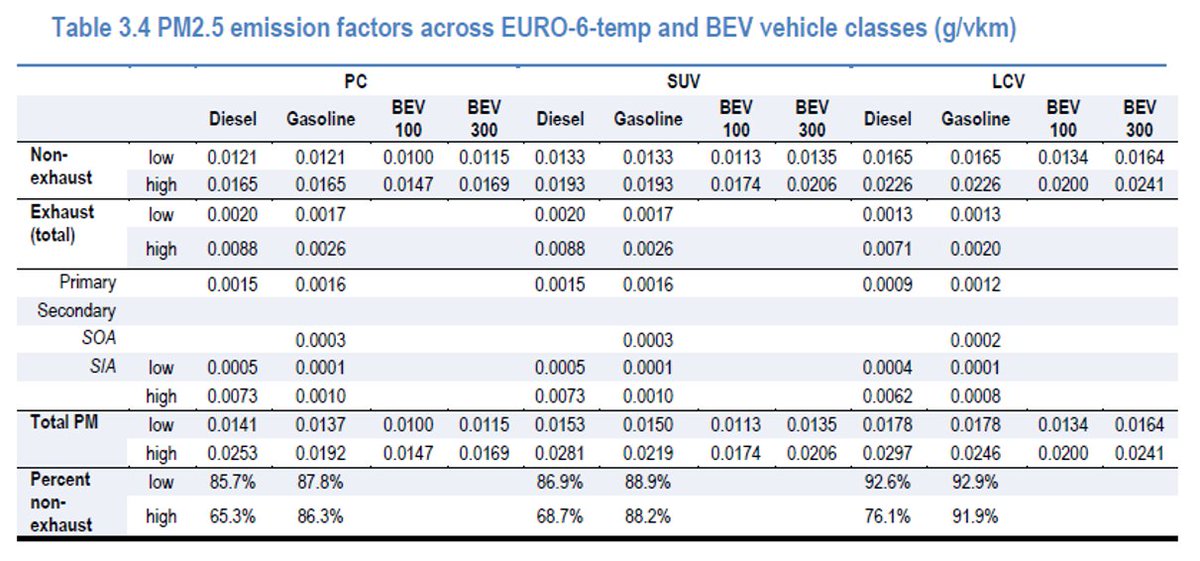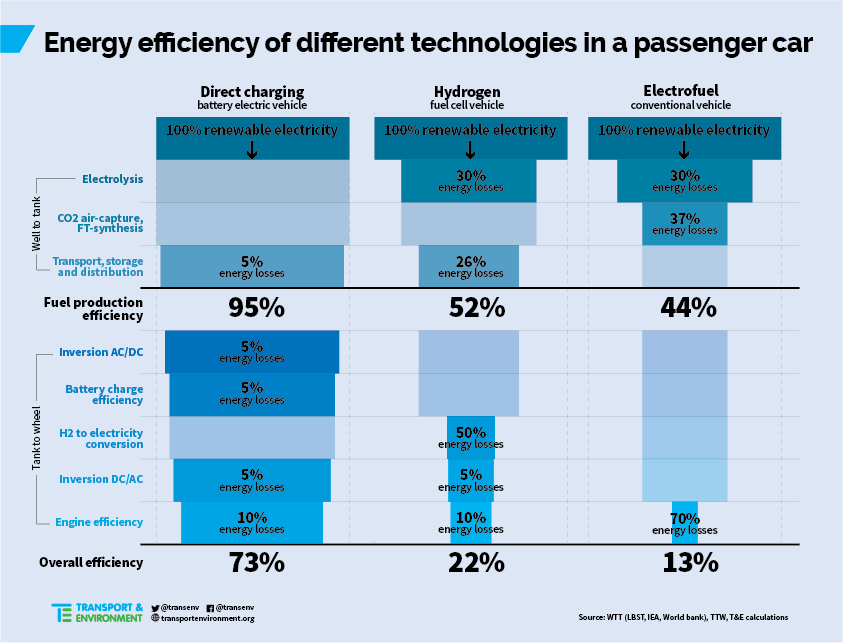
New open access publication in Nature concludes: meat should be more than twice as expensive if we take climate damage into account.
short thread
nature.com/articles/s4146…
ht @JMoVS
short thread
nature.com/articles/s4146…
ht @JMoVS
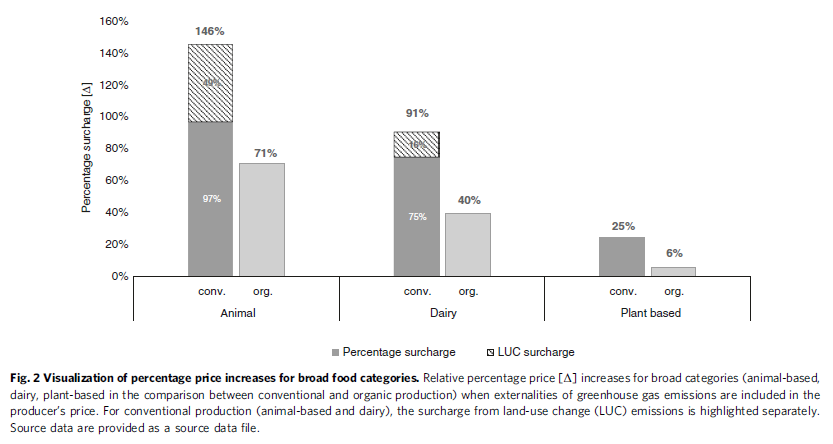
First I should be more precise:
- This is for the German situation.
- It looks at the price for farmers.
- There are large differences between types of meat and whether they are produced conventionally or organically.
- This is for the German situation.
- It looks at the price for farmers.
- There are large differences between types of meat and whether they are produced conventionally or organically.
This table shows the emissions per foodstuff in kg CO2eq per kg of foodstuff:
Beef 37 kg
Poultry 16-20 kg
Pork 6-10 kg
Eggs 1-2 kg
Milk 1 kg
Cereal 0.2-0.4 kg
Fruit 0.2-0.3 kg
Root crops 0.1 kg
Vegetables 0.0 kg
Beef 37 kg
Poultry 16-20 kg
Pork 6-10 kg
Eggs 1-2 kg
Milk 1 kg
Cereal 0.2-0.4 kg
Fruit 0.2-0.3 kg
Root crops 0.1 kg
Vegetables 0.0 kg

The authors then multiply with a CO2 price of €180/kg as per IPCC recommendations to get costs per kg
I've taken conventional production and rounded off:
Beef €7/kg (+200% on farmer price)
Poultry €3/kg (+170%)
Pork €2/kg (+130%)
I've taken conventional production and rounded off:
Beef €7/kg (+200% on farmer price)
Poultry €3/kg (+170%)
Pork €2/kg (+130%)

Even you take a very low CO2 price of e.g. €40/kg the price signal would be very significant
And just to be clear: according to economists we are already paying this in the form of (largely future) floods, droughts, etc. This is a way to introduce a "polluter pays principle"
And just to be clear: according to economists we are already paying this in the form of (largely future) floods, droughts, etc. This is a way to introduce a "polluter pays principle"
I would propose we introduce this a.s.a.p.
Not in a way that punishes the farmer but in a way that links his or her income to the actual value for society. It would enable farmers to become more sustainable and it would improve their bond to the land and to society.
Not in a way that punishes the farmer but in a way that links his or her income to the actual value for society. It would enable farmers to become more sustainable and it would improve their bond to the land and to society.
Off course it's also a great way to improve the business case for plant based meat alternatives and clean meat that would enable us to eat what we like while reducing land use for agriculture.
Conclusion
This research specifies the ignored societal costs of agriculture and especially meat. It enables us to create a level playing field for farmers that want to make agriculture more beneficial to society. I hope we are going to use it.
/end
This research specifies the ignored societal costs of agriculture and especially meat. It enables us to create a level playing field for farmers that want to make agriculture more beneficial to society. I hope we are going to use it.
/end
• • •
Missing some Tweet in this thread? You can try to
force a refresh

